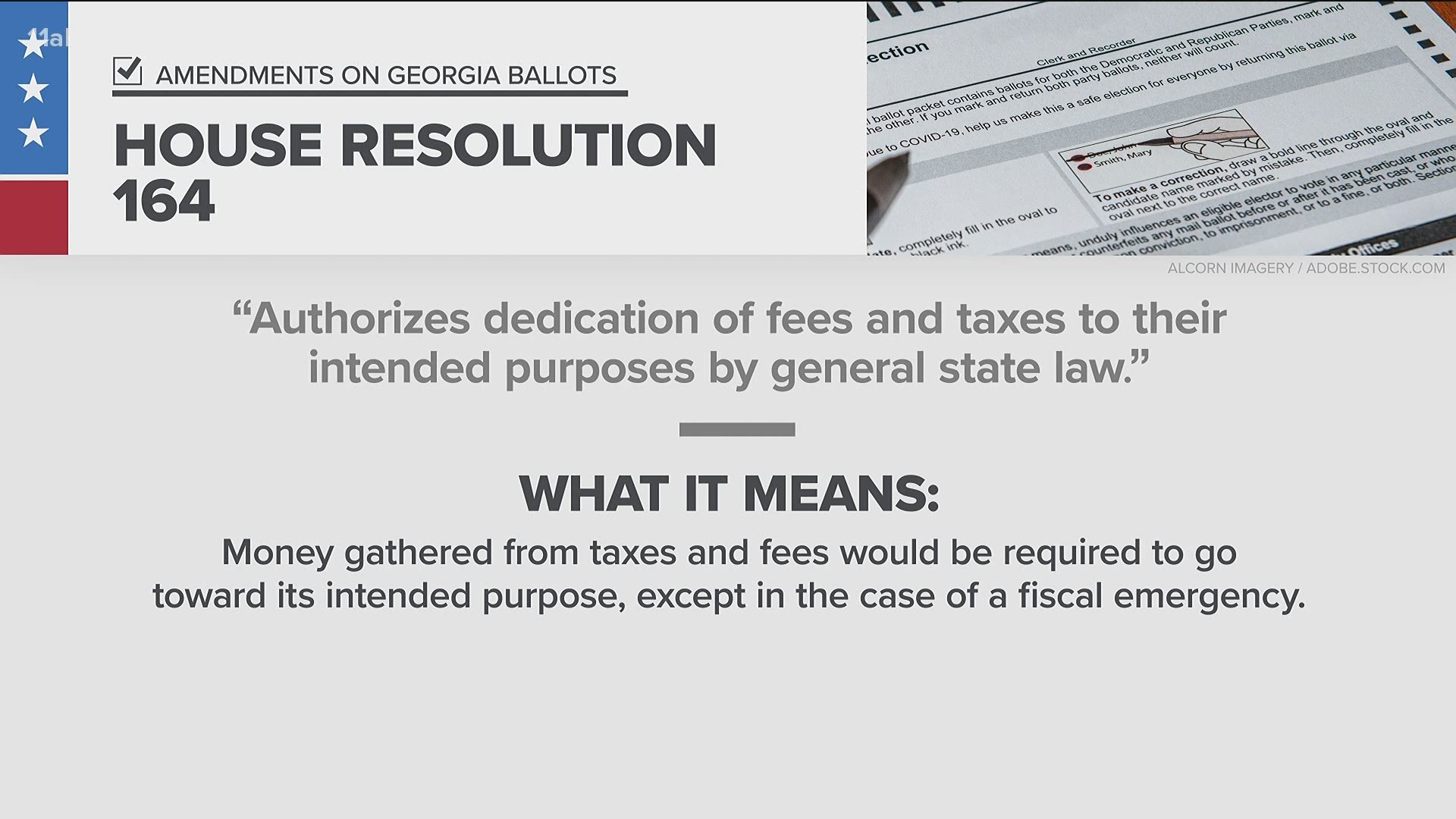ATLANTA — Georgia voters across the state will decide on two amendments and one referendum on the 2020 general election ballot.
While some communities in Georgia will see additional ballot measures, including special local option sales taxes (SPLOST), school board funding initiatives and other measures, depending on where a voter lives, the three larger measures will be seen by voters across the state.
Bookmark this page and return for real-time 2020 Georgia election results as they come in once the polls close on November 3. Download the free 11Alive News app (Google Play | Apple devices) to receive alerts as the numbers come in. Send us any voting day issues or questions by text at (404) 885-7600.
What is Georgia Amendment 2?
Constitutional Amendment 2 may be listed on your ballot as "Georgia Amendment 2."
The amendment waives state and local sovereign immunity for violation of state laws, state and federal constitutions.
"Shall the Constitution of Georgia be amended to waive sovereign immunity and allow the people of Georgia to petition the superior court for relief from governmental acts done outside the scope of lawful authority or which violate the laws of this state, the Constitution of Georgia, or the Constitution of the United States?"
This measure, initially sponsored by Republican Rep. Andrew Welch, would waive the state's "sovereign immunity," and allow Georgia residents to seek relief through superior courts from state or local laws found to violate the United States Constitution, the Georgia state Constitution or Georgia state law, effective January 1, 2021.
Sovereign immunity, by definition, is the concept of the government not being able to be sued without its consent. Its origin lies in British common legal doctrine, based on the concept that "the King could do no wrong."
According to the Cornell Law School, in the United States, sovereign immunity typically applies to the federal and state governments, though both have the ability to waive sovereign immunity. The federal government did this when the Federal Tort Claims Act was passed in 1946.
Under Georgia Amendment 2, if passed, a court could not award damages, attorney's fees, or other court costs, unless authorized by the state legislature.
If approved, the waiver of sovereign immunity would apply to acts occurring on or after January 1, 2021.
According to an analysis by Ballotpedia, a YES vote by voters on Election Day will support waiving the state's sovereign immunity, allowing Georgia residents to be able to sue and seek declaratory relief from state or local laws that violate the Georgia Constitution, the U.S. Constitution or Georgia state law.
That same analysis indicates that a NO vote by voters on Election Day opposes waiving the state's sovereign immunity, allowing Georgia residents to be able to sue and seek declaratory relief from state or local laws that violate the Georgia Constitution, the U.S. Constitution or Georgia state law.
The resolution -- House Resolution 1023 -- was sponsored in the state House by Rep. Andrew Welch (R - 110th, McDonough), Chuck Efstration (R - 104th, Dacula), Barry Fleming (R - 101st, Harlem), Robert Trammell (D - 132nd, Luthersville), Trey Kelley (R - 16th, Cedartown) and Mary Margaret Oliver (D - 82nd, Decatur). In the Senate, it was sponsored by Sen. John Kennedy (R - 18th, Macon).
The Senate and House voted on the measures one day apart. The Senate voted first, on June 15, 2020, passing it by a vote of 50-0. The House voted the following day, June 16, 2020, also passing the measure by a vote of 164-0.
When will Georgia's election results be announced?
The short answer is, that answer is uncertain. It's likely that some of the Georgia races will be called on election night, but tallying for others may not be finished that day.
The state has seen record early voting and absentee voting numbers, which can easy voter gridlock on election day, plus it puts voting data into computer databases more quickly.
While some counties have started opening and processing ballots, the votes can't actually be tabulated until after polls close on election day, per state law.

